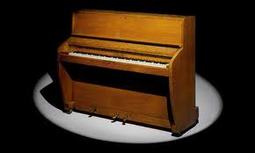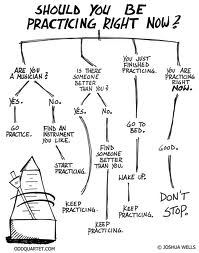 People want to learn to play an instrument fast. (I included). We dream about performing the Moonlight Sonata, jamming the blues, or playing Christmas carols in just weeks. Two weeks would be ideal to quote Leo Babuata. Search for “learn piano fast" in Google and you get 418,000 hits. The proprietors make wild claims and promises. Bunk, of course. Let us take a closer look at what it would take to play well. Focused practice on the right things for a start. Playing an instrument is primarily an athletic event. Physical skills take time and guidance. Of course, there are people who can guide you more effectively and quicker than others. However, few people can teach themselves past a rudimentary level. It would be like trying to achieve your black belt from watching Youtube. An absurdity. Now assuming you have a competent teacher, in person or online, you have to learn effective practice habits. The habits of the pros. (I swear some people spend more time looking for shortcuts than the time it would take to learn properly in the first place) Before you dive in with plans of practice marathons, I suggest you start slowly and build some good habits, habits that will raise the odds of success. Step one: Listen to a competent recording of your pieces before starting to play. Then complete the assignment, and afterwards fiddle about. Step two: Explore the instrument, improvise, and noodle about. Step three: Add a little time each week to your practice sessions. Step four: Inspire yourself by reading magazines for students like Keyboard, Pianist, Modern Drummer, Downbeat, etc. Step five: Have faith in your progress. It is a lot of work to learn to play well. I practiced about 400 hours before I could play drums in an amateur band and not embarrass myself too much. Now I am up over 1000 hours in almost 3 years. If it takes 10,000 hours to reach expert status, at this rate I will be 80 years old. Nevertheless, I will be swinging hard. My goal is to add one extra hour per month to my practice schedule. Now my drum practice is about 6 hours a week. By the end of the year, I hope to have it up to about 12 hours a week. Which will cut the 30 years down considerably? (In my forties, I studied and obtained my ARCT in piano pedagogy. I put in five thousand hours over 4 years of practice and study. I succeeded at it, and had an excellent finish, but the experience was the most difficult thing I ever did in my life, period. Berklee College of Music was a walk in the park compared to that experience.) Final thought: Celebrate the small victories because it is the journey that counts. These thoughts and acts will help tame the practice monster and give you some inner peace to help you persevere through the difficulties, defeats, and triumphs of learning to play well. Cheers, David
0 Comments
 Are you learning tunes or concepts? You need a balance of both. Just learning tunes leads one into a cul-de-sac. There is a reason to practice scales, chords, arpeggios, and studies if you are a pianist. There is a reason to practice your rudiments if you are a drummer. Best advice I got on this topic was, “the people you admire, really know what they are doing”. Check out Jo Jo Mayer, or Elton John, etc. These musicians are highly trained individuals. They are not fakers. Read any drum magazine. Behind the tattoos and hair are skilled tradesmen and women. Second best advice I got is, “you got to put in time, if you want to leave the land of make believe”. Cheers, David |
You've got to learn your instrument. Then, you practice, practice, practice. And then, when you finally get up there on the bandstand, forget all that and just wail. AuthorI'm a professional pianist and music educator in West Toronto Ontario. I'm also a devoted percussionist and drum teacher. Categories
All
|
 RSS Feed
RSS Feed